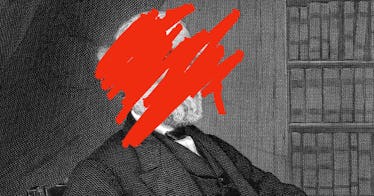Robert E. Lee’s Descendant Urges Everyone to Permanently Cancel Robert E. Lee
He spoke in support of the removal of a statue of his great-great-great-great-uncle.

When Virginia Governor Ralph Northam announced the pending removal of Richmond’s famous Robert E. Lee statue last Thursday, he was joined by African American clergy, activists, politicians, and a white man with a famous name: Robert W. Lee IV.
A pastor himself, Lee IV was on hand to support the removal of the statue of his great-great-great-great-uncle, and he explained why inan op-ed for theWashington Post.After explaining the pervasiveness of the insistence that the Civil War was fought for states’ rights, he explained its perversity.
“The catch is that there’s more to that sentence, something wesouthernersare never taught: The Civil War was fought for states’ rightsto enslave African people in the United States of America.”
The history, of course, backs him up. And with the murders ofGeorge Floydand Breonna Taylor by police and the subsequent international protests, it’s a particularly awful time to celebrate racists and a particularly convenient time to tear down statues of them.
On Wednesday, the mayor of Richmond announced plans to remove the four remaining Confederate statues that sit on Monument Avenue next to Lee’s. That same day in Philadelphia, a statue of Frank Rizzo, the openly racist and homophobic former mayor and police commissioner,was removedand a mural of Rizzo painted over. And in a less official but equally effective move, protestors in Bristol, UK, used ropes totear down a statue of Edward Colston, a 17th-century slave trader. They rolled it through the streets and shoved it into the sea.
李IV确实有一些同情他的多herners, who fear “a loss of a certain understanding,” as the symbols of their history are removed. But he also acknowledges that removing those symbols doesn’t go far enough.
“To rest when symbols of oppression fall is to have only done a portion of the work,” he wrote, vowing — in words that only a pastor could write — to “begin anew each morning to redeem the world and atone for the past.”
This article was originally published on